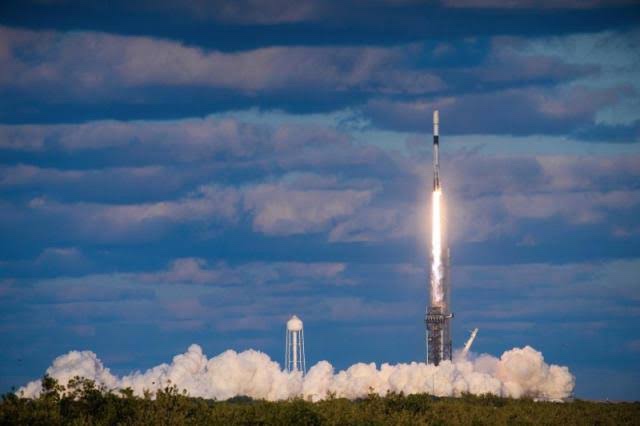South Korea successfully deploys second spy satellite into orbit

South Korea has achieved a significant milestone in its space endeavors, successfully placing its second domestically manufactured spy satellite into orbit. This announcement was made by Seoul’s defense ministry on Monday, following a launch from an American space center utilizing a SpaceX Falcon 9 rocket.
According to the defense ministry’s statement, the satellite completed a crucial step by establishing communication with an overseas ground station shortly after its deployment. The separation from the launch vehicle occurred at approximately 09:02 (1202 GMT), entering the intended orbit, with successful contact established around 10:57 (0157 GMT).

With this achievement, South Korea’s military asserts that its independent intelligence, surveillance, and reconnaissance capabilities have been significantly bolstered. Additionally, it reaffirmed its commitment to future satellite launches, expressing confidence in seamless operations going forward.
This development amplifies the ongoing space competition within the Korean peninsula, particularly in light of North Korea’s launch of its inaugural military satellite in November. South Korea’s defense minister emphasized heightened vigilance regarding potential satellite launches by North Korea, indicating an anticipated launch in April, possibly coinciding with significant national events.
South Korea’s strategic objectives in space extend beyond mere surveillance, with plans to deploy a total of five military spy satellites by 2025, enhancing its monitoring capabilities over North Korea. Once operational, these satellites will enable the South Korean military to observe key facilities in the North at regular intervals, providing critical insights into any developments.
In response to North Korea’s advancements in space technology, South Korea’s defense minister highlighted concerns regarding the potential impact on regional security dynamics. Analysts have noted that the successful deployment of reconnaissance satellites could significantly enhance North Korea’s intelligence-gathering capabilities, posing challenges to South Korea and its allies.
The escalating tensions between the two Koreas underscore the strategic importance of space capabilities in maintaining regional stability. Amidst geopolitical uncertainties, South Korea remains steadfast in its efforts to strengthen its space assets, recognizing the pivotal role they play in safeguarding national security interests.














